Early in our travel from Makassar we stopped at the home of the “widow” to see a typical lowland home. Well, as Rusli interpreted our questions to Nur, we learned that her mother had died and Nur was now alone. But she was in no hurry to marry and earned her living cutting hair and sewing. Also we paid a small 2,000 rp donation. 10,000 rp make $1. We liked Nur and she and her friends liked us. The lady getting her hair cut admired my Kota Kinabalu public market blouse that I had bought for the sleeves. We were offered a candy of sticky rice and had a second tiny helping. It was good! Nur is part of the newer generation that won’t rush to marry rather than be alone. She has a home and can earn a living. Most women might not be able to do that. It was originally her parent’s home first. Nur might not ever have been able to get one on her own.
Oddly I only took photos of the inside and underneath of the house and not from the front.
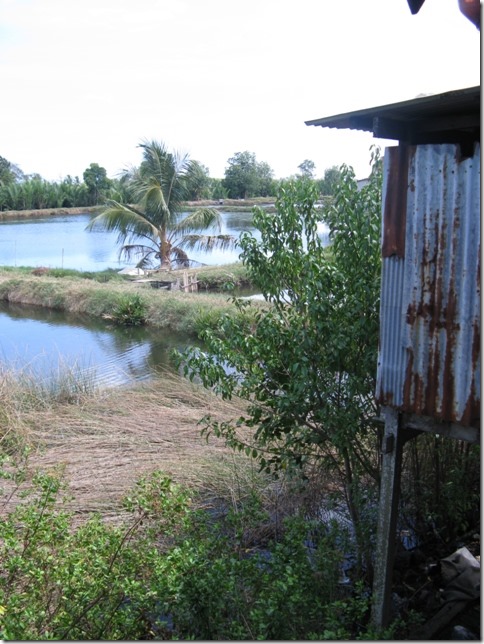 The side of Nur’s house along the river.
The side of Nur’s house along the river.
You can see it is up on stilts so that the “underneath part” can be used. It isn’t because of possible flooding.
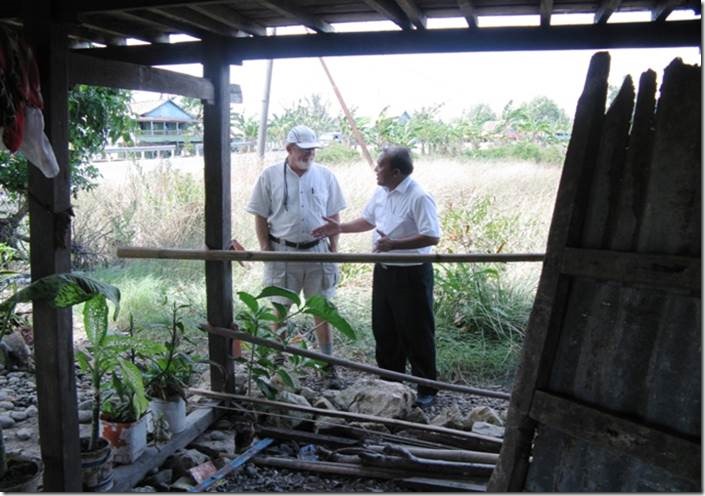 Underneath. You can see a house in the left corner that is similar though bigger.
Underneath. You can see a house in the left corner that is similar though bigger.
Chickens and roosters live here and plants too.
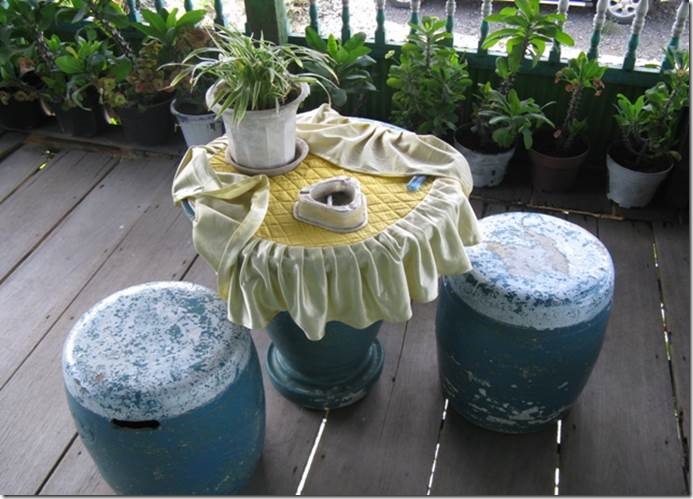 Tiny porch over looks the street.
Tiny porch over looks the street.
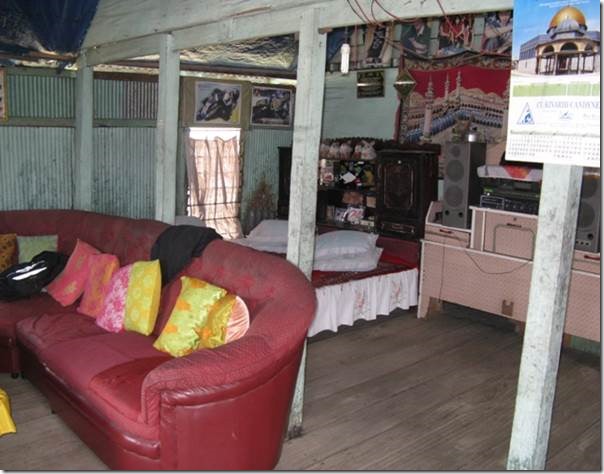 The front room and sleeping room. All was swept clean and neat.
The front room and sleeping room. All was swept clean and neat.
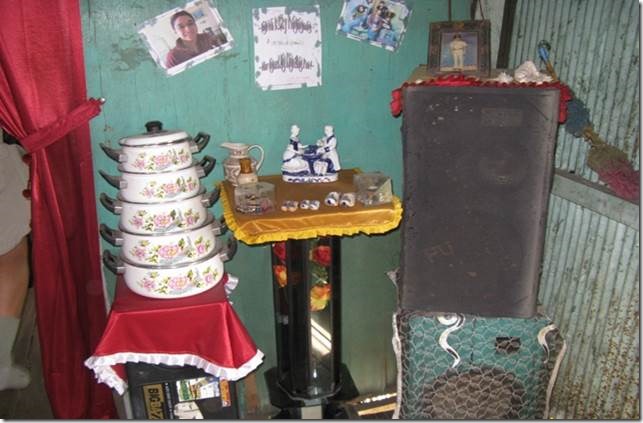 Lots of “stuff” that we would call “stuff.” Or collectibles. I really wanted to look more closely but didn’t want to be rude.
Lots of “stuff” that we would call “stuff.” Or collectibles. I really wanted to look more closely but didn’t want to be rude.
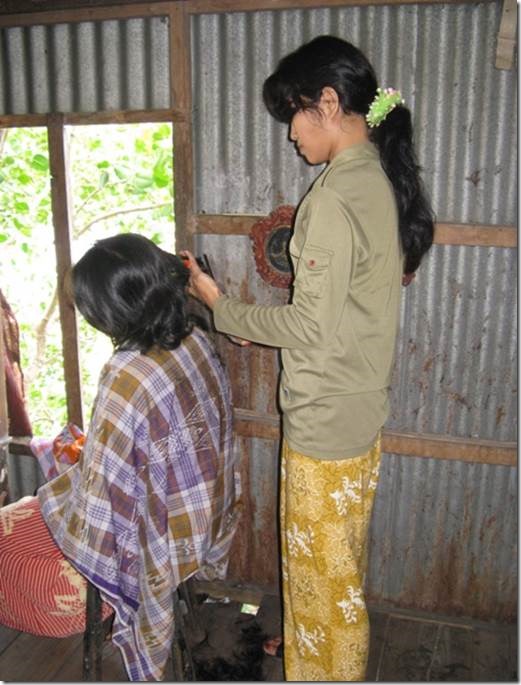 Nur cutting hair. You can see the cut off hair on the floor. The weather is never cold so the home doesn’t need insulation. It does have electricity, but not running water.
Nur cutting hair. You can see the cut off hair on the floor. The weather is never cold so the home doesn’t need insulation. It does have electricity, but not running water.
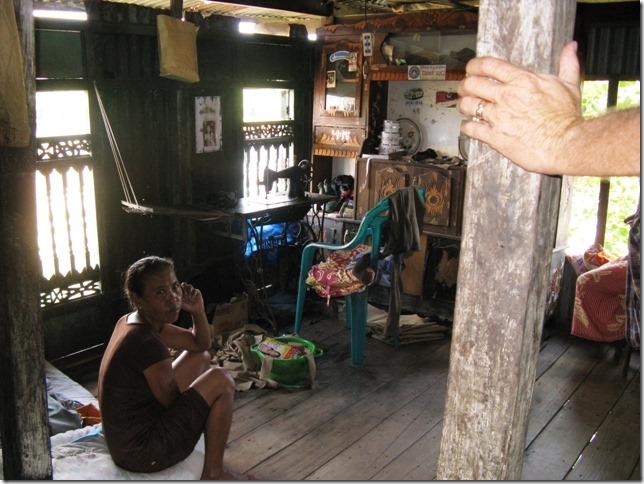 Sewing corner. Beams held up the roof. Those who sew can recognize the age of the machine.
Sewing corner. Beams held up the roof. Those who sew can recognize the age of the machine.
